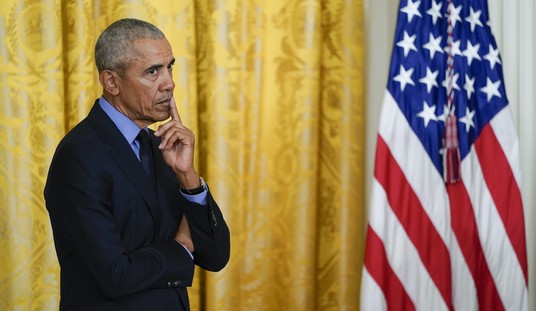Democrats are hoping the moderate Medicaid changes in the Republican tax cut legislation that President Trump signed into law on Independence Day will be the issue that brings their party back to life.
Democrats plan to campaign heavily on the "Medicaid cuts to pay for tax cuts for billionaires" theme. According to House Minority Leader Hakeem Jeffries, Republicans are "slashing and burning... Medicaid to the ground." Senate Minority Leader Chuck Schumer claims the legislation is "the biggest cut to Medicaid in American history."
Mainstream media has dutifully carried this hyperbole as fact.
There's one major problem with this claim: The legislation does not cut Medicaid; it merely slows down its explosive growth. Medicaid spending has increased by almost 50 percent over the past five years and now costs nearly $1 trillion annually. The GOP law merely moves spending closer to — yet still well above — its 2019 pre-Covid baseline trend. Only in Washington is a needed spending slowdown considered a "slash and burn," savage cut.
Perhaps the biggest problem with Democrats' Medicaid narrative is that Americans overwhelmingly support the legislation's primary reform: moderate work requirements for healthy adults without dependents. More than six in 10 able-bodied adults on Medicaid now report no earned income, meaning they choose not to work.
Dozens of polls, including those conducted by left-wing organizations, reveal that the public strongly backs this commonsense measure that you shouldn't get something for nothing. For example, a February 2025 Kaiser Family Foundation poll finds 62 percent of Americans support Medicaid work requirements. A May 2023 Axios poll finds 63 percent support them, including 66 percent of independents. And a Job Creators Network poll finds 71 percent of small businesses support them.
Recommended
Work requirements have a bipartisan history of success. In the 1990s, President Clinton signed welfare work requirement legislation, which was widely credited with reducing dependency, increasing employment, and lowering poverty rates.
There's similar broad public support for the law's reforms to ensure Medicaid goes to eligible recipients, not illegal immigrants.
Another problem with the Democrat narrative is the credibility of Medicaid participation projections. Tell me if these sound familiar: "Republicans now want to pay for tax cuts for the wealthy by taking health care away from 13 million Americans"; "We’re kicking 13 million people off health insurance to give tax cuts to the wealthy"; and this classic: "This is Armageddon."
These were claims by leading Democrats (Sen. Dick Durbin, Sen. Schumer, and then-Speaker Nancy Pelosi, respectively) in response to the original Tax Cuts and Jobs Act that passed at the end of 2017. The Congressional Budget Office projected at the time that 13 million Americans would lose their health coverage, including 5 million from Medicaid.
In reality, the number of Americans with health coverage, including Medicaid, increased. (The economy also boomed, especially for the working class, tax revenues increased, and the tax code became more progressive.)
Yet there's never accountability in Washington, and Democrats are again relying on CBO projections that the new law will kick 11.8 million people off coverage.
This is another partisan exaggeration. People will only lose coverage if they choose not to comply with the requirements or are found to be ineligible. The law includes numerous exemptions for individuals facing hardships, caring for loved ones, or dealing with mental illness or substance abuse. Many who "lose" Medicaid will transition to better employer-sponsored healthcare options, while also gaining a paycheck, purpose, and dignity.
Medicaid work requirements help protect the program for those who truly need it: low-income pregnant women, children, seniors, and the disabled. Work requirements are not a barrier; they're a bridge to a better life. Ignore the Democrat rhetoric: the Republican law makes Medicaid work.
Alfredo Ortiz is CEO of Job Creators Network, author of "The Real Race Revolutionaries," and co-host of the Main Street Matters podcast.
Editor’s Note: Every single day, here at Townhall, we will stand up and FIGHT, FIGHT, FIGHT against the radical left and deliver the conservative reporting our readers deserve.
Help us continue to tell the truth about the Trump administration and its successes. Join Townhall VIP and use promo code FIGHT to get 60% off your membership.

























Join the conversation as a VIP Member